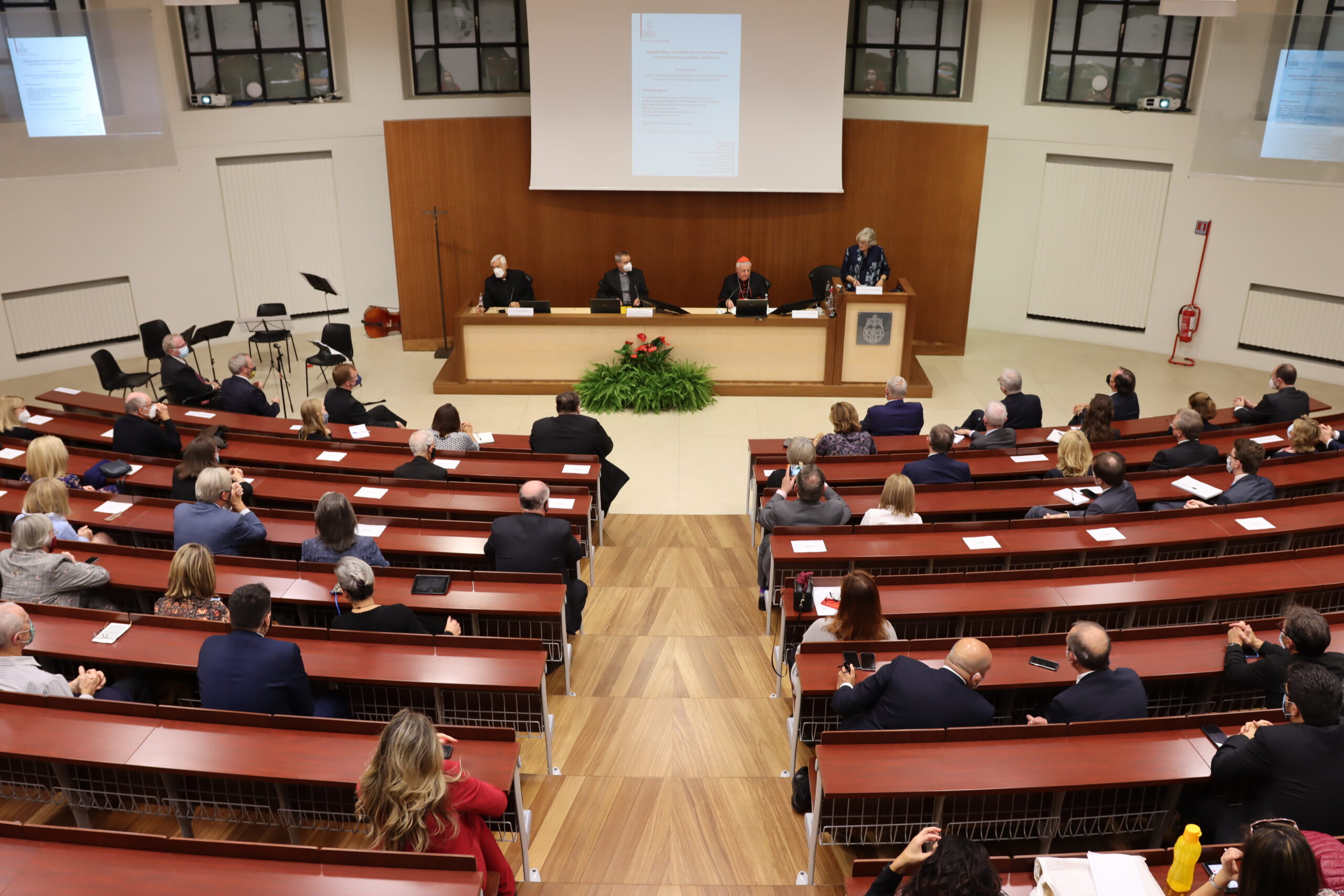
Safeguarding Institute Inaugurated
“The new name also refers to the vital importance that all humans deserve to be treated with dignity: women, men, old, and young. It is our hope that the Institute’s very name may serve as a reminder that we all deserve to be treated with dignity and that our work embodies this principle.” Fr. Hans Zollner SJ
Institute of Anthropology. Interdisciplinary Studies on Human Dignity and Care
On 1 September 2021, the Pontifical Gregorian University’s Centre for Child Protection (CCP) became the Institute of Anthropology. Interdisciplinary Studies on Human Dignity and Care (IADC). This transformation comes after approval by the Congregation for Catholic Education, together with the academic authorities. The IADC carries on and expands the work done by the CCP over the last decade, focusing specifically on interdisciplinary studies that explore the importance of human dignity and care. The institute also continues to offer the Diploma in Safeguarding and the Licentiate in Safeguarding, with the addition of a Doctorate in Anthropology.
ROME – The Pontifical Gregorian University’s Institute of Anthropology. Interdisciplinary Studies on Human Dignity and Care (IADC), formerly the Centre for Child Protection (CCP), celebrated its inauguration with an event entitled Safeguarding Vulnerable People by Promoting Interdisciplinary Academic Initiatives.
The event took place on Thursday, 14 October 2021, at the Pontifical Gregorian University, from 5:00 p.m. to 6:30 p.m. in the Aula Magna. Twenty-two students have joined the institute’s seventh diploma program this autumn, representing 15 countries from Africa, Asia, Europe, and North America.
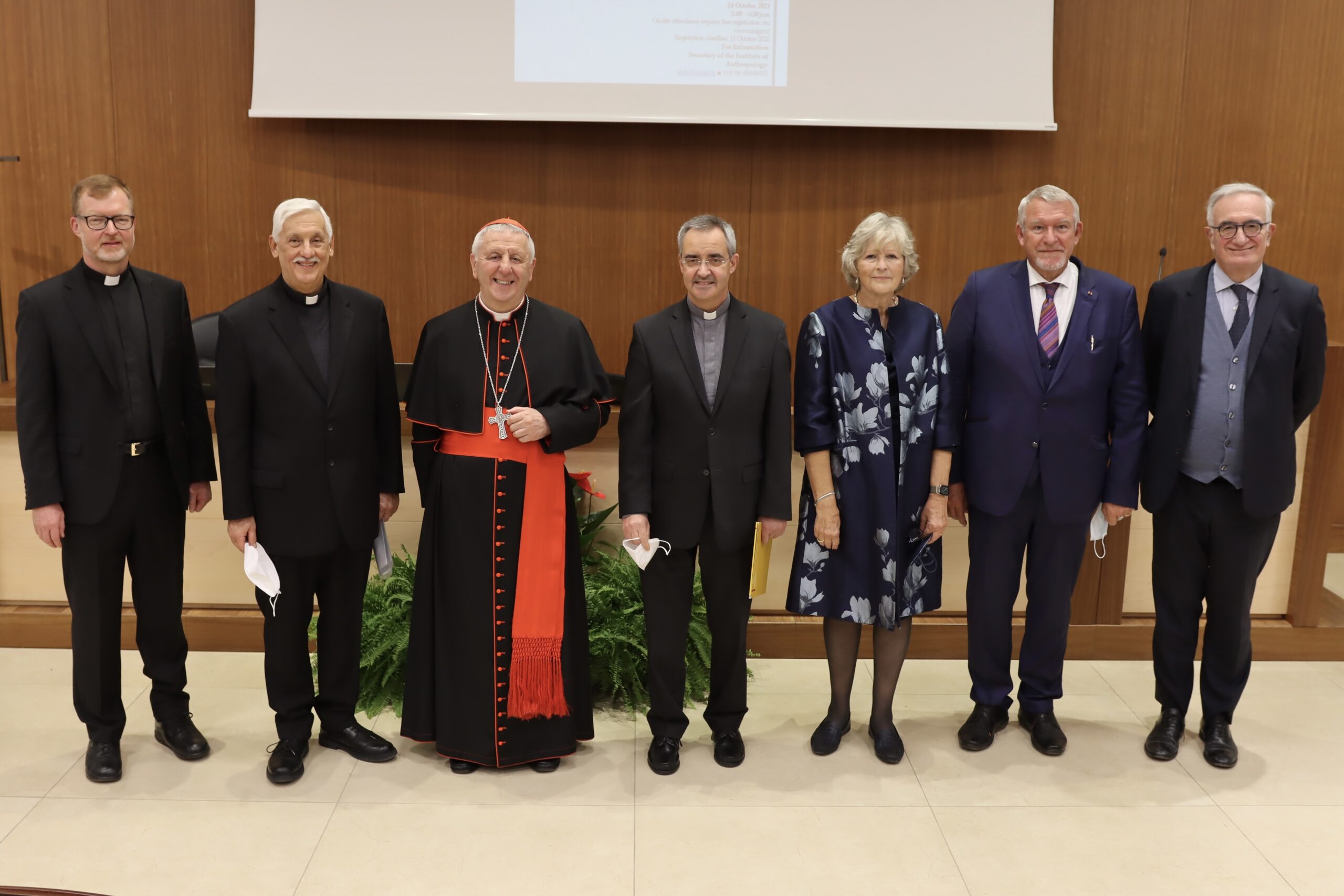
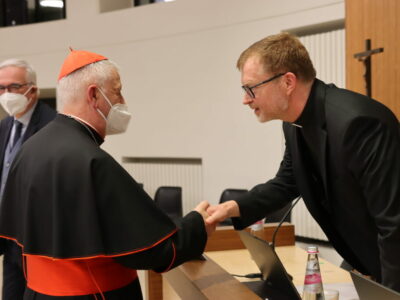
New Academic Institute of Safeguarding
On 1 September 2021, the CCP was elevated to the status of academic institute, broadening its scope of study and research. The new institute continues the CCP’s work in child protection while expanding its areas of research to include multidisciplinary and scientific reflection on human dignity and the care of vulnerable persons, children and adults alike. It also desires to contribute to the development of strategies that may help people positively cope with abuse and grow in resilience and to the shaping of healthy environments that encourage integral human growth.
In explaining the principles underpinning the institute’s name, IADC Director Fr. Hans Zollner SJ said: “The new name also refers to the vital importance that all humans deserve to be treated with dignity: women, men, old, and young. It is our hope that the Institute’s very name may serve as a reminder that we all deserve to be treated with dignity and that our work embodies this principle.”
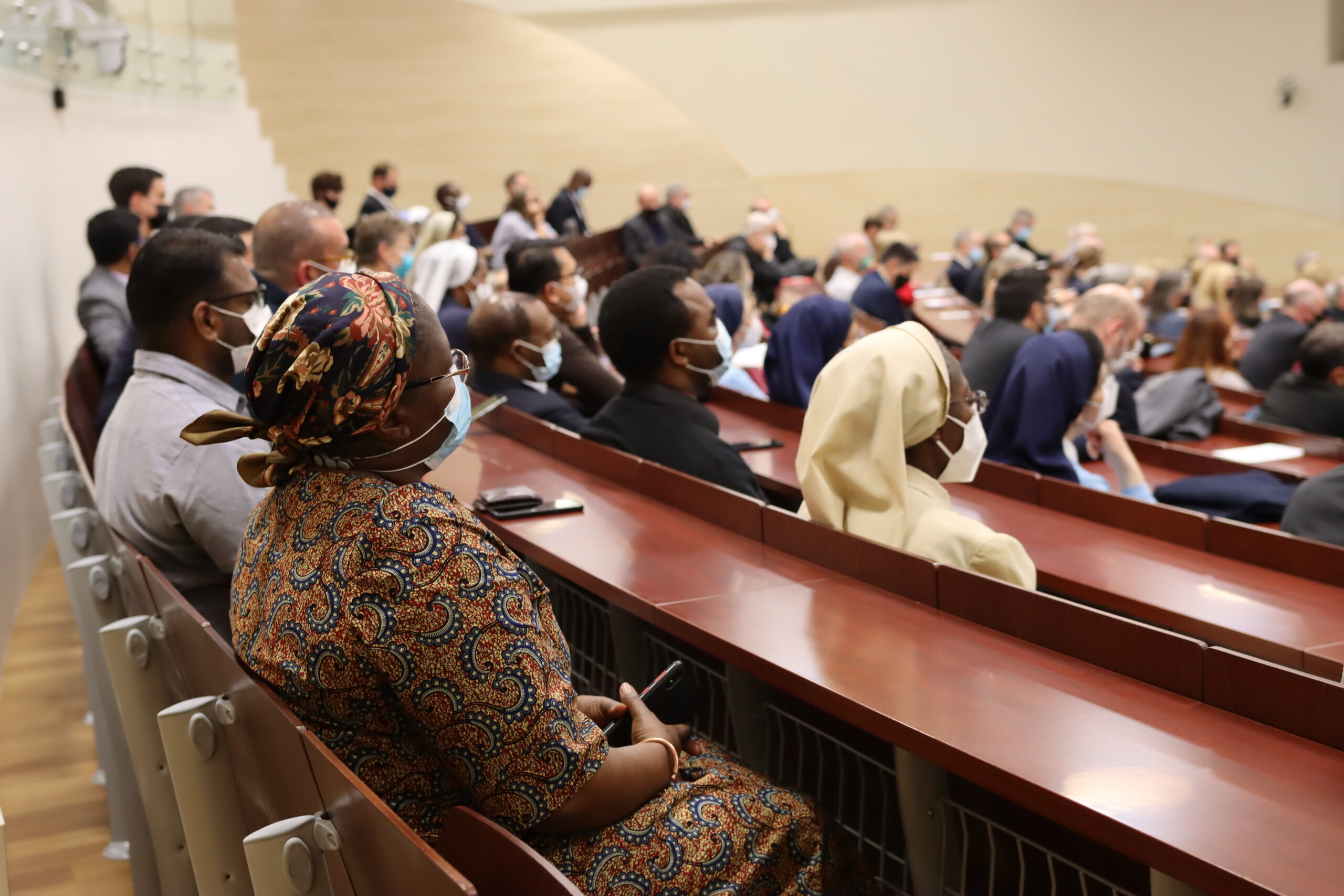
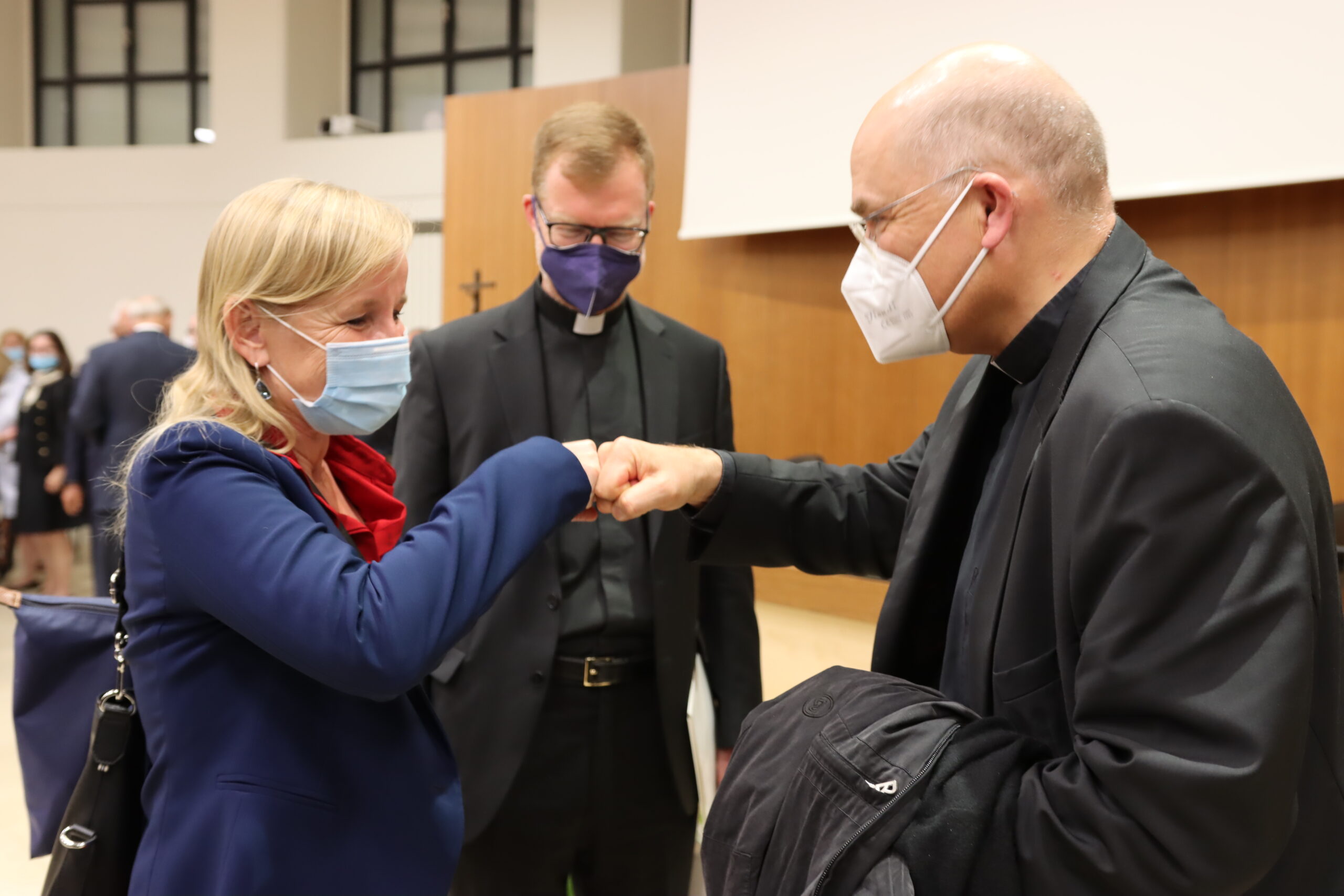
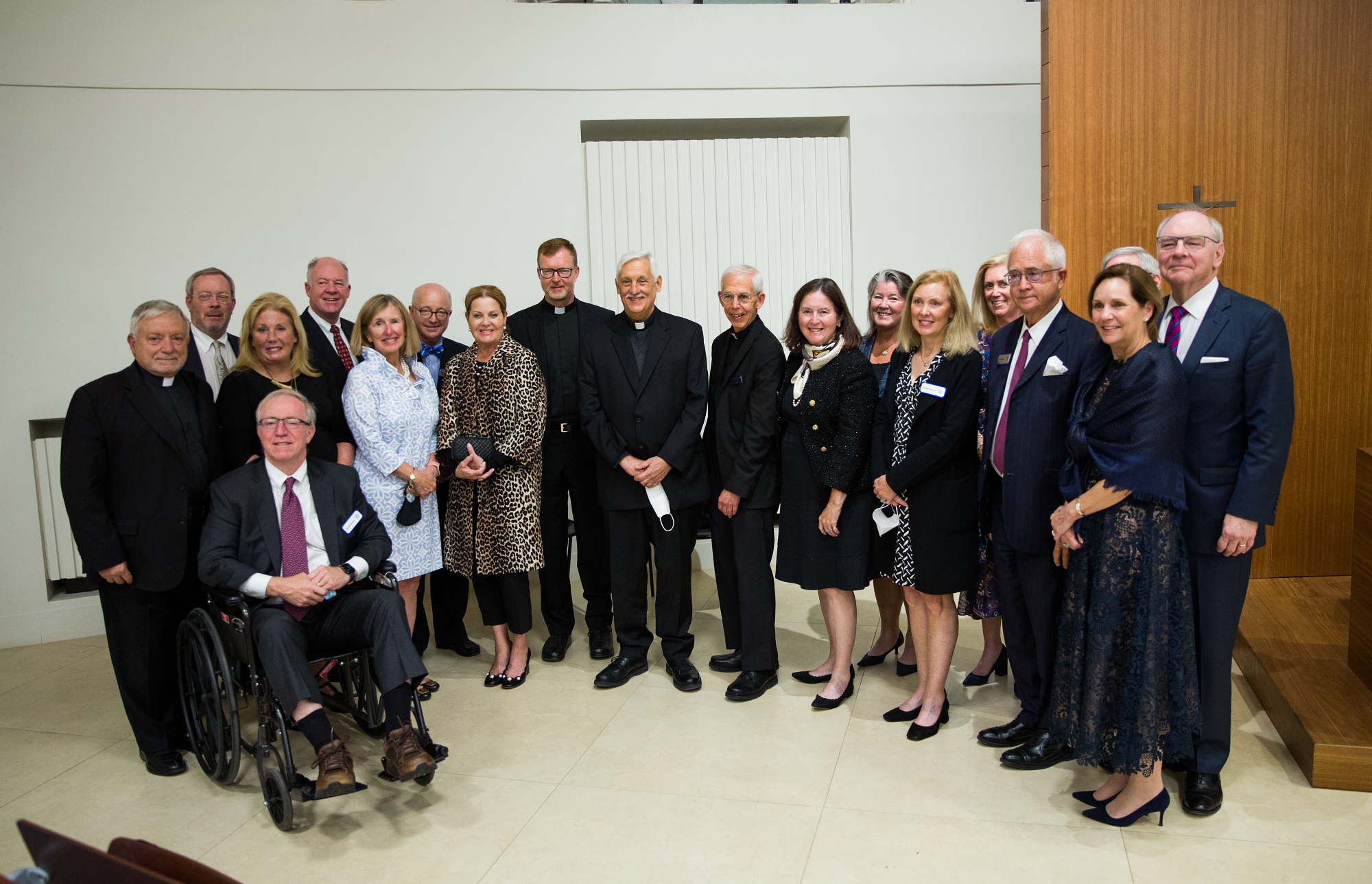
Prof. Sheila the Baroness Hollins, Professor Emeritus of Psychiatry of Intellectual Disability at St. George’s, University of London, was the moderator of the event. She was chair of the CCP’s Scientific Advisory Board, which offered input on educational resources and learning strategies.
The participants
Fr. Nuno da Silva Gonçalves, a Jesuit priest from Portugal and Rector of the Pontifical Gregorian University since 2016. He said: “This is a specific way in which the Pontifical Gregorian University can help the Church and its institutions to be at the front line of the fight against all types of abuse, especially sexual and spiritual. In this area, where the protection of human dignity is at stake, the Gregorian stands ready to do all that we can to contribute to healing the wounds of the past and to building a society based on mutual respect and care.”
Fr. Arturo Sosa Abascal SJ, Superior General of the Society of Jesus. Cardinal Giuseppe Versaldi, Prefect of the Congregation for Catholic Education and Grand Chancellor of the Pontifical Gregorian University. According to the Cardinal: “Overcoming the divide between faith and reason is the prerequisite for establishing a shared anthropology.”
Prof. Maria Cristina Messa, Italian Minister of University and Research and Full Professor of Diagnostic Imaging at the University of Milan-Bicocca, where she served as rector from 2013 to 2019. She said: “As places that educate and form first of all people and then professionals, universities can and must work, together with other institutions, with greater purpose in planning and a broader and more penetrating incisiveness.”
Mr. Juan Carlos Cruz Chellew, a Chilean native and member of the Pontifical Commission for the Protection of Minors. He is also a communications executive and global advocate for survivors of clerical abuse.
Prof. Ernesto Caffo, Professor Emeritus of Child and Adolescent Psychiatry at the University of Modena and Reggio Emilia. He is the founder and president of Telefono Azzurro, as well as a member of the Pontifical Commission for the Protection of Minors.
Prof. Jörg Fegert, Medical Director of the Department for Child and Adolescent Psychiatry at the University of Ulm Medical Center in Germany. He is also a board member of the European Society for Child and Adolescent Psychiatry.
In a short video presentation, one alumnus said: “It’s not about a cosmetic change. But we really have to change the culture in the Church if we want to protect minors.” The academic programs which were, for six years, focused on the protection of minors will now expand their focus to study the dignity inherent in all human beings.
On a mission
“We have sent 139 of our graduates out into the world and, together with our partner institutions, about 4000 students worldwide in our blended learning program. While we may not be able to eradicate abuse from this world, we can certainly take concrete steps to preventing abuse, to intervening in abusive situations, and to furthering the conversation on how we can approach this urgent issue. We are grateful to all our donors who support our mission,” declared Fr. Zollner SJ.

